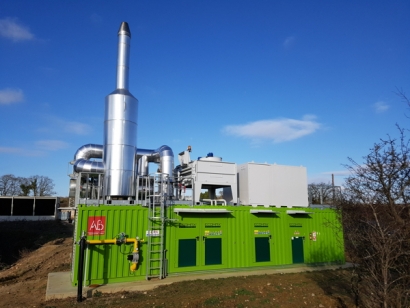
Black Dog Biogas generates renewable electricity through anaerobic digestion, where organic matter, such as maize and grass, in this case 100% sourced from the Isle of Wight, are broken down by enzymes to produce biogas and biofertiliser. Black Dog uses the biogas as a fuel in two combined-heat-and-power units to generate renewable heat and electricity. The nutrient-rich biofertiliser is spread back onto the Isle of Wight’s arable farmland and helps to grow more crops for both the Black Dog facility and promoting sustainable agricultural practices. This helps support a circular economy and avoids the use of carbon intensive fertilisers.
Black Dog Biogas generates sufficient power to supply around 80% of Vestas’ needs, as well as around 1,200 homes on the Isle of Wight.
Earth Capital, the manager of Black Dog Biogas, is invested in the project through the firm’s Nobel Sustainability Fund®, a multi-phase, multi-geography fund, which invests across the sustainable and impact private markets, accelerating companies for growth, expansion, and subsequent acquisition.
James Luter, Senior Factory Director of Vestas’ Isle of Wight facility, said, “The UK Government has unveiled ambitious plans to expand the country’s offshore wind capacity, potentially powering all UK homes by 2030. Our factory has an important role in helping to make that ambition a reality. It’s particularly pleasing that we can deliver our blades to the UK and global markets sustainably, using renewable energy from Black Dog to manufacture our blades.”
Dr Simon Crook, Director of Black Dog Biogas & Investment Director of Earth Capital, said, “This is a great opportunity for two neighboring green businesses to deliver a scheme that both makes environmental and commercial sense. We could not have wished for a better partner with which to deliver this project. Collaborations such as this are vital in helping the UK reduce carbon emissions and embrace renewable energy. Biogas is an important part of the low-carbon energy mix and it has the potential to reduce waste to landfill by converting household food waste into energy as well.”
Last year the UK Government announced a Ten Point Plan to mobilise government investment and to drive job creation to harness the Green Industrial Revolution. Advancing offshore wind was recognized as a key priority within the Ten Point Plan, with the UK setting an ambitious target of quadrupling the country’s offshore wind capacity by 2030.

